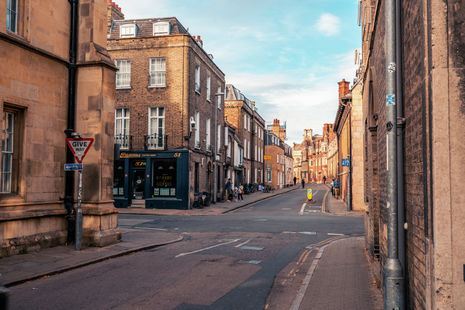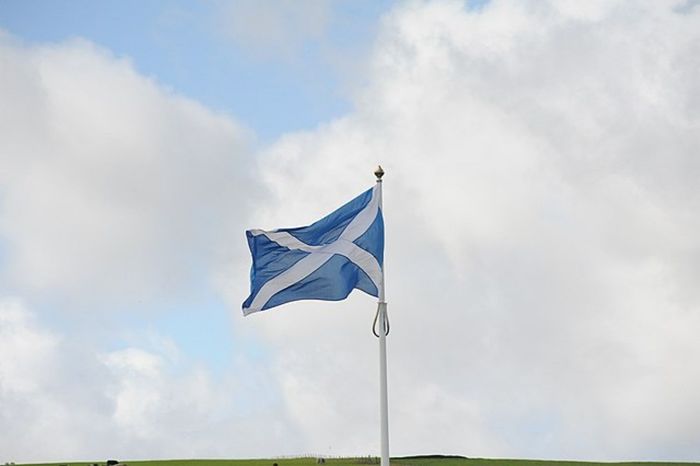At the crossroads: finding your own faith
Beth Lee examines how students maintain their faith away from home

Decisions, decisions. At the crossroads, you pick your own path. Your schedule, your go-to supermarket, the colour of your milk caps – all become your own when you move away from home. Among these daily decisions, faith looms large. The search for meaning is a good way to sum up much of what we do as students. We are told to question assumptions and test received wisdom: this hits close to home for students from religious households.
According to 2021 census data, all members of the household reported following the same religion in 32.7% of UK households. In only 1.1% of households were two or more different religions reported; 13.7% reported a combination of the same religion and ‘No religion’. Generational chains of believers are more likely than not: 58% of UK adults raised Christian still identify as such.
“We are told to question assumptions and test received wisdom”
Cambridge collects students from a cross-section of countries, backgrounds and beliefs. I interviewed three students raised in religious households, to hear how they connected with their family faith after moving away from home. How do these generational links last, or lapse, at a distance from family life?
Ben is a second-year Medical student and co-leads the Homerton Christian Union. His parents taught him to “pray to God if things are difficult or if things are going well, and that’s something I try to keep up with”. They “were very, very quick to teach me the importance of going to church” and encouraged Ben to use his gifts to serve: he is now a CU ‘Rep’, helping to run the Homerton College chapter of the Christian Union.
Ben was “very stressed” going into his first year, but found comfort in his faith. He recalls that “God [was] there as Someone to lean on and Someone to direct me. I feel like God really intervened in my transition to uni, helping me to get onto Freshaway and meet Christians before I started”. ‘Freshaway’ is the annual Freshers’ Getaway for Christians coming to Cambridge, led by the Cambridge Inter-Collegiate Christian Union in the run-up to Michaelmas. This is a chance for Christians to connect with a new faith family before making the move to Cambridge.
“I feel like God really intervened in my transition to uni”
Minnat is a Muslim in her third year, studying History and Politics. She remembers her childhood in two halves: Sudan until she was six, and then the UK. Minnat found Muslim practice to be “a lot more intentional” in the UK. Her family continued to pray and read the Qur’an, and her mother would take her to the mosque for Friday prayers. She also spent time in Islamic schools, which offer evening and weekend instruction in the Qur’an and other aspects of Muslim practice.
Moving to university, home-grown habits stuck: “a lot of things like praying […] were just normal”. It was in Cambridge that Minnat reconnected with the Muslim community, especially by joining the Islamic Society (ISoc).
Minnat tells me that “there’s so much that I’ve learned from other Muslims in Cambridge. Particularly through engaging with ISoc, and that definitely would not have happened if I hadn’t come to Cambridge and seen how you can have a Muslim community in the UK.”
She was particularly impacted by an ISoc talk on “balance in your life” during exam season: “I think that’s really helped to kind of reframe uni and Cambridge and not put every waking moment into studying”. The event poster encouraged attendees to “see exams as… part of the wider tests we face in life” and as “a chance to realign our priorities”.
“It is undeniable that environment influences our values and belief systems”
Bhavini is a PBS graduate and a Hare Krishna Hindu. She was raised in “quite a broad Hindu family”. Her family was practising, but there was not a “strong emphasis on personal practice and commitment”. Bhavini began to develop a personal faith before moving to university, joining the Hare Krishnas in sixth form and developing “a personal practice of prayer and meditation”.
It is undeniable that environment influences our values and belief systems. Tweaking this variable tests the strength of our convictions.
Bhavini found that separation from her Hare Krishna community made her “more confident in the fact that my faith is something which I want to practise because I truly believe it as opposed to just a product of the community that [I’m] in”. For Ben too, self-responsibility spurred on his faith: “I don’t have my parents to talk to about it. There’s a lot more responsibility on myself […] I think it was kind of like a make-or-break thing.”
But Cambridge life lasts for eight weeks at a time; moving back home puts a different perspective on things. Short, intense terms stretch us like rubber bands, and some recoil is to be expected.
Minnat does revert “in a way” to her “pre-uni” practice, which involves more individual worship. But the perspective shift is permanent: “I think it’s brought a new perspective […] you can find [that Muslim community], you can look for it”.
Bhavini experienced the opposite, spending the vacations with a much more developed community than she found in Cambridge. She feels that her term-time independence gave her a “sense of inner strength” which has changed how she practises in the community: “I’ve become less conforming to things that don’t feel authentic to me”.
“The gradient of change steepens, but this first phase of independence is a decisive moment”
All three interviewees experienced a paradigm shift that survived the vacations. But independence is an upward incline. With so many transitional stages still ahead, I wanted to know how Minnat, Ben, and Bhavini saw their faiths shaping their futures and future families.
Both Bhavini and Minnat emphasised the importance of staying in the community. “No matter how busy things get, always having moments where you’re […] connecting with people who share the same goals and spiritual values as you” will be key to continuing her faith, says Bhavini.
Ben says that “the way God’s been with me and God’s helped me through the transition from sixth form to uni has been amazing. In any other transitional stages […] I think I’ll just try and follow it in exactly the same way as I did for uni because I don’t really see how that could’ve gone better in any way”.
All three plan to raise their own children in their respective faiths.
The gradient of change steepens, but this first phase of independence is a decisive moment. But self-responsibility and self-sufficiency are not the same thing, and both Minnat and Ben found stronger support networks in Cambridge than outside. A common theme is community – finding your own faith means finding a new family.
This is good news for all believers, regardless of their background, and perhaps an open invitation to the faith-curious. For those who grew up with a family faith, and those who did not, Cambridge is a crossroads. Deciding what claims your ultimate allegiance might just be the most crucial decision you will make.
 News / Judge Business School advisor resigns over Epstein and Andrew links18 February 2026
News / Judge Business School advisor resigns over Epstein and Andrew links18 February 2026 News / Hundreds of Cambridge academics demand vote on fate of vet course20 February 2026
News / Hundreds of Cambridge academics demand vote on fate of vet course20 February 2026 News / Petition demands University reverse decision on vegan menu20 February 2026
News / Petition demands University reverse decision on vegan menu20 February 2026 News / CUCA members attend Reform rally in London20 February 2026
News / CUCA members attend Reform rally in London20 February 2026 News / Gov grants £36m to Cambridge supercomputer17 February 2026
News / Gov grants £36m to Cambridge supercomputer17 February 2026










